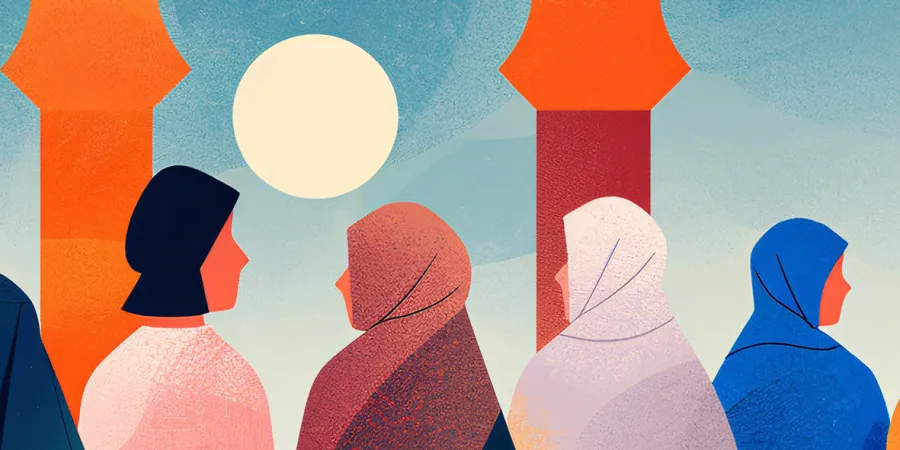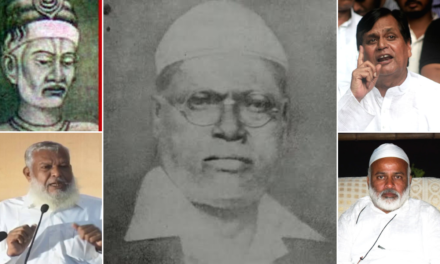Islamic feminism has emerged as a vital movement within feminist discourse, striving to reclaim egalitarian principles found within Islamic teachings. Scholars like Asma Barlas and Amina Wadud interpret the Qur’an with a focus on ethical readings, emphasizing that the core principles of tawhid (the oneness of God) and taqwa (God-consciousness) are essential for gender justice. The movement seeks to challenge patriarchal interpretations of Islamic texts, promoting alternative readings that favor equality, especially in contemporary Muslim contexts.
Historical Roots of Islamic Feminism
The beginnings of Islamic feminism can be traced to the early 20th century when Muslim women sought greater representation and rights. This movement was not a simple mimicry of Western feminism; rather, it stemmed from an effort to restore the egalitarian values that the Qur’an advocates. Reformers like Fatima Mernissi critiqued patriarchal structures that distorted Islamic teachings to reinforce male dominance.
Today, Islamic feminism builds on this legacy, engaging with both classical Islamic scholarship and modern feminist theory. Unlike secular feminists who sometimes view Islam as inherently patriarchal, Islamic feminists work within the religious tradition to question and reform oppressive interpretations. They argue that many misogynistic interpretations of Islamic law are not inherent to Islam but are byproducts of patriarchal readings of the Qur’an.
Qur’anic Ethics and Gender Justice
Central to Islamic feminism is the ethical framework of the Qur’an. Scholars argue that qurn text promotes justice, equality, and human dignity—values fundamental to gender justice. The concept of tawhid implies that no human being, regardless of gender, has the right to dominate another. Thus, patriarchy, which enforces male dominance over women, is incompatible with the principle of tawhid.
Similarly, taqwa, or God-consciousness, is accessible to all humans, regardless of gender, as stated in the Qur’an (49:13). This establishes a criterion of moral and ethical superiority based solely on individual piety and not on gender. This egalitarian framework underpins Islamic feminist efforts to reinterpret the Qltw1ur’an in ways that support gender justice.
Deconstructing Patriarchal Interpretations
Islamic feminists aim to dismantle patriarchal readings of the Qur’an and Islamic jurisprudence, which have historically justified the subjugation of women. Classical jurists, despite recognizing the Qur’an’s ethical principles, often did not apply them consistently when it came to gender issues. For example, laws governing marriage and divorce in classical Islamic jurisprudence tend to favor men, even though the Qur’an emphasizes fairness and justice.
Scholars like Barlas and Wadud argue that these classical interpretations were shaped by the socio-political context of their time, which was patriarchal. By applying a hermeneutic of justice, Islamic feminists aim to bring to light more egalitarian interpretations that align with the Qur’an’s ethical values. Wadud, for example, advocates for an interpretive approach that considers the ethical intent of the text, emphasizing dynamic engagement with contemporary gender issues.
Legal Reform and Social Change
One of the main objectives of Islamic feminism is to advocate for legal reform and social transformation in Muslim-majority societies where laws based on patriarchal readings of the Qur’an and Islamic tradition often disadvantage women. Islamic feminists argue for reforms in areas such as marriage, divorce, and inheritance laws, which frequently grant more rights to men. For instance, many legal systems give men the upper hand in divorce proceedings, leaving women with limited recourse.
Islamic feminism calls for aligning legal frameworks with the Qur’an’s ethical imperatives, ensuring justice for women. Reforms in family law, for instance, could establish more equitable rights for women in marriage, divorce, and inheritance, addressing centuries of legal inequities.
Social Transformation
Beyond legal reform, Islamic feminism seeks to foster cultural and social changes that allow women to participate fully in public and private life. This means not only legal equality but also shifts in societal attitudes toward women. Islamic feminism aims to challenge patriarchal norms and create a more egalitarian society where women are empowered and respected as equal partners in family, society, and religion.
Challenges to Islamic Feminism
Despite its potential to promote gender justice, Islamic feminism faces substantial opposition. Critics argue that feminism, as a Western construct, cannot be reconciled with Islamic tradition. Others claim that Islamic feminists are attempting to impose modern notions of equality on a religious text that they believe does not explicitly endorse gender equality.
Yasmin Moll critiques Islamic feminists for using modern interpretive tools, arguing that these tools lack the depth necessary to fully engage with Islamic tradition. Aysha Hidayatullah adds another layer of complexity, suggesting that the Qur’an contains both egalitarian and hierarchical messages about gender, and Islamic feminists must contend with this tension rather than assume the text fully supports gender equality.
Islamic Feminism in the Indian Context
In the context of Indian Muslim society, the need for Islamic feminism is particularly urgent. Patriarchal interpretations of Islamic teachings have marginalized Indian Muslim women, denying them educational opportunities, economic independence, and rights in marriage and divorce. Moreover, Muslim women in India face additional challenges from discriminatory legal practices, such as the now-abolished practice of triple talaq.
Islamic feminism offers Indian Muslim women a way to reclaim their rights within a framework that resonates with their religious identity. This is especially critical in a society where feminist movements are often seen as external or secular influences. By advocating for gender justice through Islamic principles, Islamic feminists in India can bridge the gap between religious teachings and modern ideals of equality.
Reclaiming Educational Rights
Education is one of the cornerstones of empowerment, and Islamic feminism highlights the need for equal access to education for both men and women. In India, Muslim women, particularly in economically disadvantaged communities, have lower educational attainment. The lack of education not only limits their personal growth but also hinders their ability to contribute to society.
By framing education as a religious obligation, Islamic feminism provides a culturally relevant argument for promoting women’s education, enabling them to break free from traditional gender roles and achieve greater agency in their personal and professional lives.
Gender-Based Violence and Islamic Feminism
Islamic feminism also addresses the issue of gender-based violence in Indian Muslim society. Domestic violence, sexual harassment, and emotional abuse are often justified by cultural and patriarchal interpretations of religion. However, Islamic feminism asserts that Islam condemns all forms of injustice and exploitation, and therefore, any form of violence against women is against Islamic principles.
By utilizing Islamic teachings to combat violence, Islamic feminists provide a framework for advocating gender justice that resonates within the Muslim community. This allows women to seek accountability and justice for violence and abuse within a religious framework.
Bridging Tradition and Modernity
Indian Muslim women are often caught in a struggle between tradition and modernity, where pursuing education, careers, or personal autonomy can be viewed as conflicting with religious or cultural values. Islamic feminism offers a middle path, allowing women to engage with modern ideals of equality and freedom while maintaining their religious identity. By promoting reforms aligned with Islamic values, Islamic feminism empowers Indian Muslim women to navigate these complexities while demanding their rights.
Islamic feminism is crucial for advancing gender justice in Muslim societies. By reinterpreting religious texts and advocating for legal and social reforms, Islamic feminists are working to dismantle patriarchal structures that have long oppressed women. Despite facing challenges from both within and outside the Muslim community, Islamic feminism remains a powerful movement for change, one that is deeply rooted in the ethical worldview of the Qur’an.
For Indian Muslim women, Islamic feminism provides a pathway to claim their rights within a framework that respects both their religious and cultural identities. By challenging patriarchal norms and advocating for gender justice, Islamic feminism is not only transforming legal systems but also fostering more egalitarian communities where women are equal partners in building a better future.
Dr. Uzma Khatoon is a PhD from Department of Islamic Studies, Aligarh Muslim University and taught there between 2017-18.





